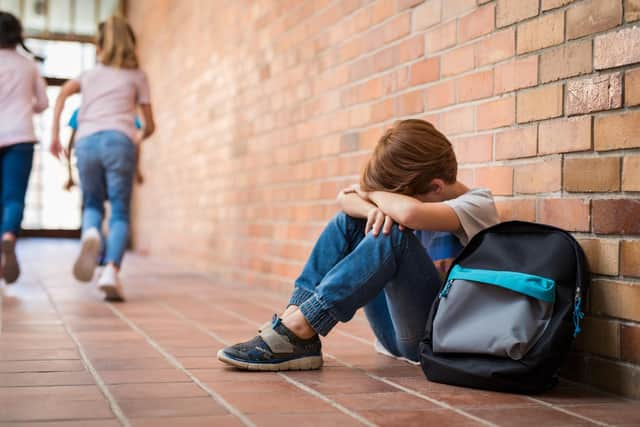Parents warned over 'extremely harmful' risks of posting photographs of their children on social media
A Scottish children’s charity has warned parents to “think really carefully” before sharing images of their children on social media, amid growing fears they could be “stolen and manipulated”.
The comments from Children 1st come as the impact of the rise of artificial intelligence (AI) technology causes alarm among many groups involved in child protection.
Advertisement
Hide AdAdvertisement
Hide AdThere was shock in Spain last year when it emerged images were circulating of a group of girls aged between 11 and 17.


An app had been able to take pictures of them fully clothed from social media profiles, before using AI to generate naked images.
Debbie Noble, assistant director for children and family services at Children 1st, said parents in Scotland should be aware of the dangers.
“Parents share images of their children on social media with the best of intentions. They may want to share important milestones with family members who live far away or, show how proud they are of their children’s successes,” she said.
"But sadly, there are risks of sharing images on social media. To keep their children safe, parents need to think really carefully about when, where, how often, and who they share their children’s images with.
“Rapid advances in technology and AI are making it even easier for images to be stolen and manipulated, in ways that can be extremely harmful to children and young people.”
Ms Noble said restricting settings on social media accounts can keep children safer, but parents should remember their contacts can still copy images. She said parents should also consider what permissions they give to schools, clubs and other groups who may wish to share images.
“Every time you share an image of your child, you are building their digital footprint. Images of children may stay online for years. What seems adorable now, may cause a child inadvertent embarrassment or distress as they get older,” she said.
Advertisement
Hide AdAdvertisement
Hide AdYvonne Skipper, a senior lecturer in psychology at Glasgow University’s School of Education, said sharing parenting experiences – dubbed “sharenting” - can be a good way for parents to create communities and seek advice, with one study finding 97 per cent of pregnant women used the internet to seek information about pregnancy.
“Sharenting can be used to share family news in pictures, receive social support and seek and share advice with others,” she said.
“Many celebrities even have accounts for their babies and children so it is becoming very common for parents to create a digital footprint for even very young children.”
However, Dr Skipper said a UK study found 71 per cent of 12-16 year olds thought their parents did not respect their privacy online, and 40 per cent said their parents had shared embarrassing photos of them.
"Pre teens have also said that they are often annoyed and frustrated by the pictures their parents post of them. They feel like their parents do not ask their opinions before sharing, and even when they asked parents to take down embarrassing or unflattering photos, their parents often did not. This can put a strain on the parent and child relationship.”
Anyone concerned about an image of a child online can contact the Children 1st Parentline service on 08000282233 or visit children1st.org.uk/parentline
Comments
Want to join the conversation? Please or to comment on this article.
